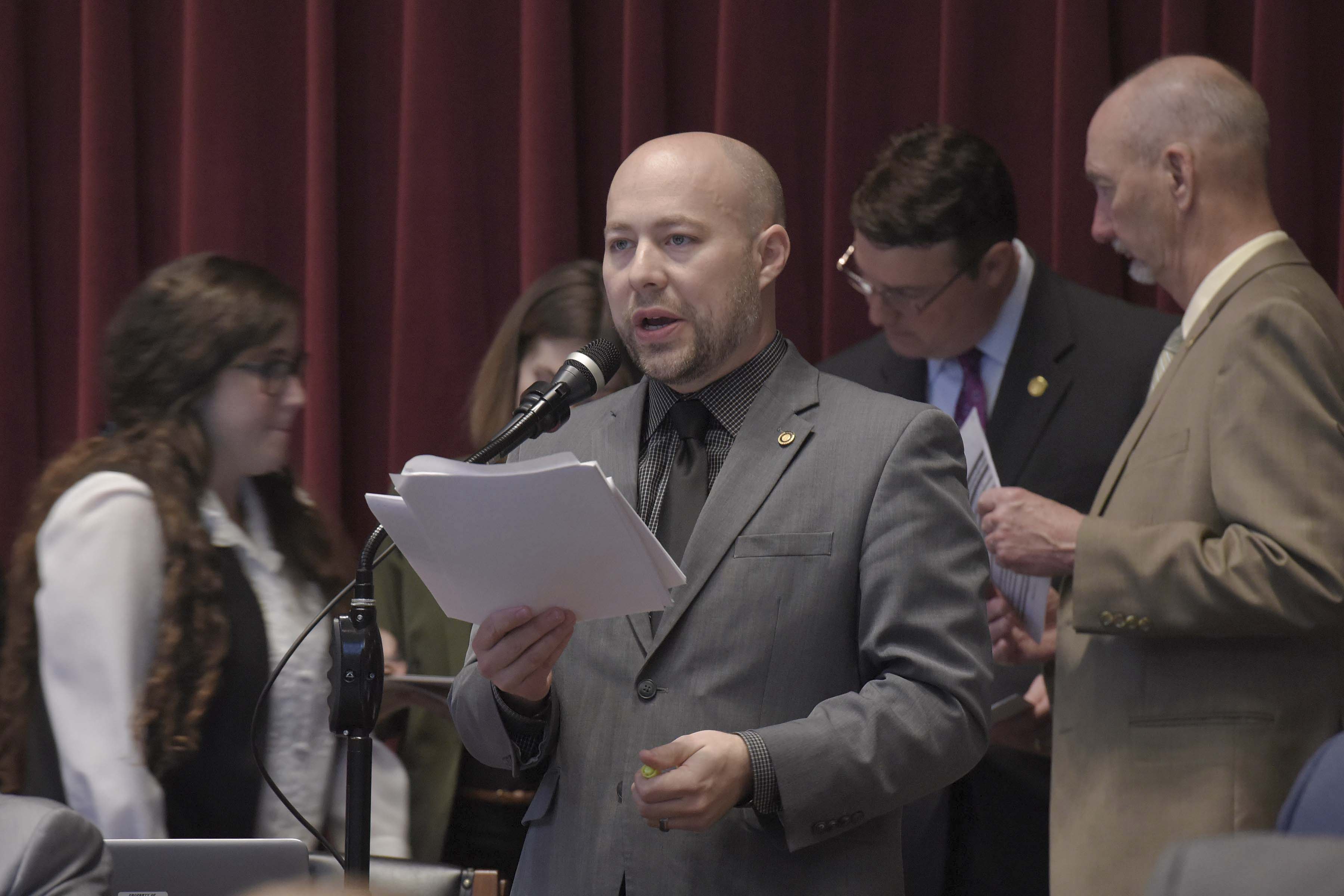JEFFERSON CITY, Mo. — The Missouri House approved the budget for Fiscal Year 2020 after a tense debate along partisan divides on the floor.
That blueprint, that spans 13 bills, puts new funding towards transportation infrastructure, more money to education, and allocates revenue for state employee raises.
House perfects FY 2020 budget, endorses GR for roads, uses lottery fund for Fast-Track
The roughly $30 billion budget for the upcoming year is based on revenue growth of 2 percent from the current year. But there is a lot of speculation if the state will even meet FY 2019 revenue projections.
As of Wednesday night, revenue collections were down $297 million from the same point in 2018. As of Monday, revenue collections were down $353 million. Neither of those figures accounts for the 1.7 percent growth projected for the current fiscal year.
“I do believe we will still at least get to zero if not the [consensus revenue estimate] but I will say I am nervous, too,” Mark Seittmann, legislative director for the Missouri Department of Revenue, told the House Committee on Government Oversight Wednesday.
Leaders in both chambers say they are keeping an eye on the situation.
“We are being very cautious and watching it very closely,” said Sen. Dan Hegeman, the Senate Appropriations Chair.
He did note they will have a better idea of the revenue situation after tax day and at that point, if needed, they would still have time to make the necessary adjustments.
But for now, both chambers are going ahead with the original consensus revenue estimate for FY 2020. For the upcoming year, the state has an operating budget of $29.7 billion — $10.1 million from general revenue, $9.9 million from federal funds, and $9.7 million from other funds.
During the third read of the bills, tensions soured between the two parties on how funds should be spent. One particular line item sparked a lengthy debate.
During the markup process, funding for the Summer Jobs program was cut from $5.5 million, the amount recommended by Gov. Mike Parson, to $4 million. In the past, the program had been funded up to $8 million.
During perfection, Rep. Bruce Franks, Jr. proposed an amendment that would have restored funding to the level recommended by the governor — but as with every amendment offered by a Democrat, it was voted down.
That lead to Franks delivering an impassioned speech on the floor about the importance of the program and not letting partisan politics decide votes.
Republicans countered that the body was not given enough time to contemplate the amendment and any unforeseen consequences.
“In the future, show up in my office in December. That way I can fight for the funding in committee,” said Rep. David Wood. “Do it at the beginning and not this late.”
Yet, Minority Leader Crystal Quade called the entire ordeal a partisan affair.
She said in her first two years in the House, the budget was her favorite part because it was the least partisan thing in the building.
“I can no longer say that about the budget,” said Quade.
“I think it is a shame that our conservation on this sometimes breaks down to a partisan battle,” said House Budget Chair Cody Smith.
In the end, all 13 budget bills were moved forward in the process.
HB 1, appropriates money to the Board of Fund Commissioners, passed with a vote of 148-1.
HB 2, appropriates money for the expenses, grants, refunds, and distributions of the State Board of Education and Department of Elementary and Secondary Education, passed with a vote of 106-40.
HB 3, appropriates money for the expenses, grants, refunds, and distributions of the Department of Higher Education, passed with a vote of 108-43.
HB 4, appropriates money for the expenses, grants, refunds, and distributions of the Department of Revenue and Department of Transportation, passed with a vote of 104-45.
HB 5, appropriates money for the expenses, grants, refunds, and distributions of the Office of Administration, Department of Transportation, and Department of Public Safety, passed with a vote of 102-43.
HB 6, appropriates money for the expenses, grants, refunds, and distributions of the Department of Agriculture, Department of Natural Resources, and Department of Conservation, passed with a vote of 115-29.
HB 7, appropriates money for the departments of Economic Development; Insurance, Financial Institutions and Professional Registration; and Labor and Industrial Relations, passed with a vote of 108-41.
HB 8, appropriates money for the expenses, grants, refunds, and distributions of the Department of Public Safety, passed with a vote of 105-44.
HB 9, appropriates money for the expenses, grants, refunds, and distributions of the Department of Corrections, passed with a vote of 105-43.
HB 10, appropriates money for the expenses, grants, refunds, and distributions of the Department of Mental Health, Board of Public Buildings, and Department of Health and Senior Services, passed with a vote of 101-46.
HB 11, appropriates money for the expenses, grants, and distributions of the Department of Social Services, passed with a vote of 99-47.
HB 12, appropriates money for the expenses, grants, refunds, and distributions of statewide elected officials, the Judiciary, Office of the State Public Defender, and General Assembly, passed with a vote of 109-32.
HB 13, appropriates money for real property leases and related services, passed with a vote of 116-25.

Alisha Shurr was a reporter for The Missouri Times and The Missouri Times Magazine. She joined The Missouri Times in January 2018 after working as a copy editor for her hometown newspaper in Southern Oregon. Alisha is a graduate of Kansas State University.















